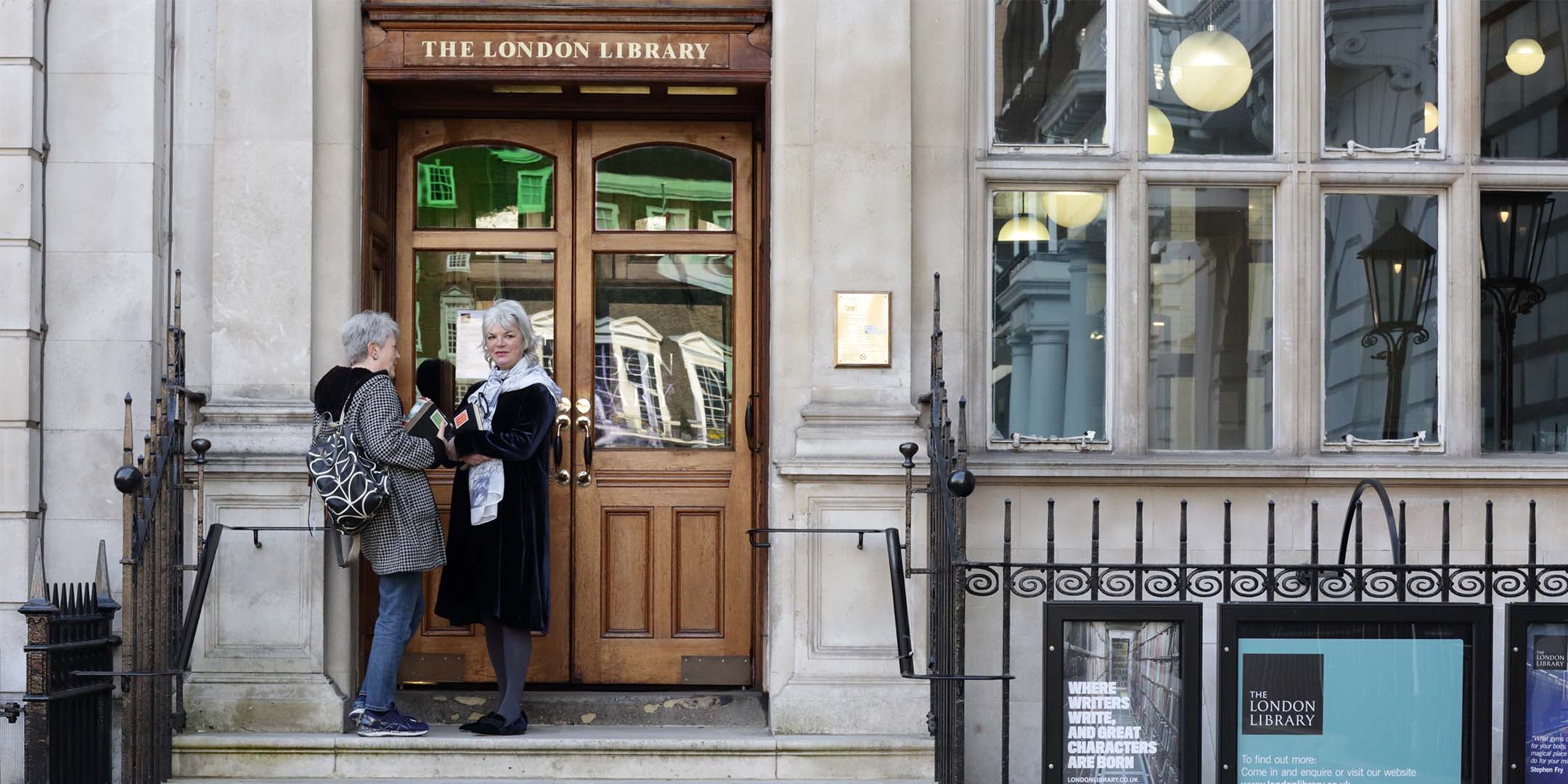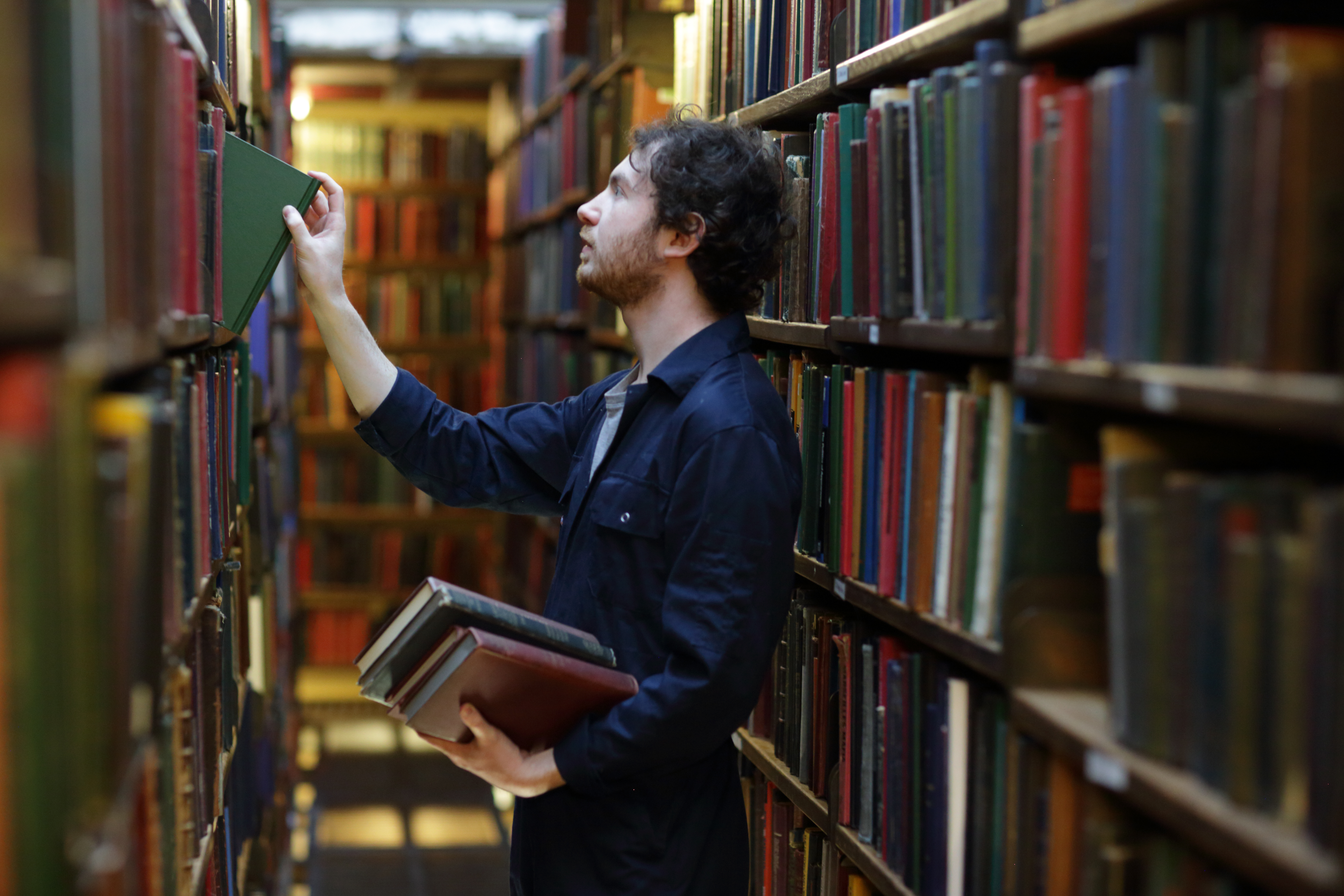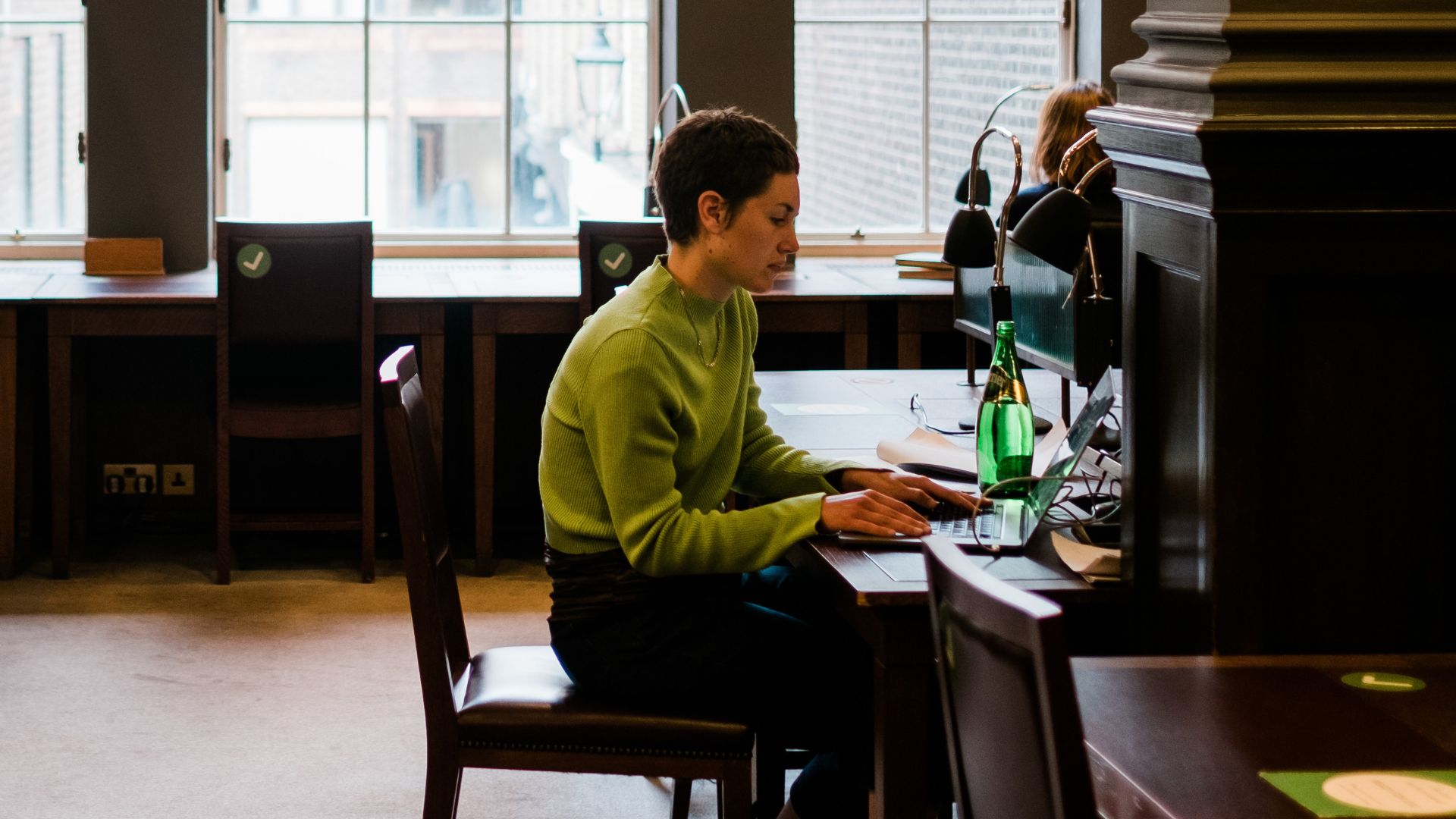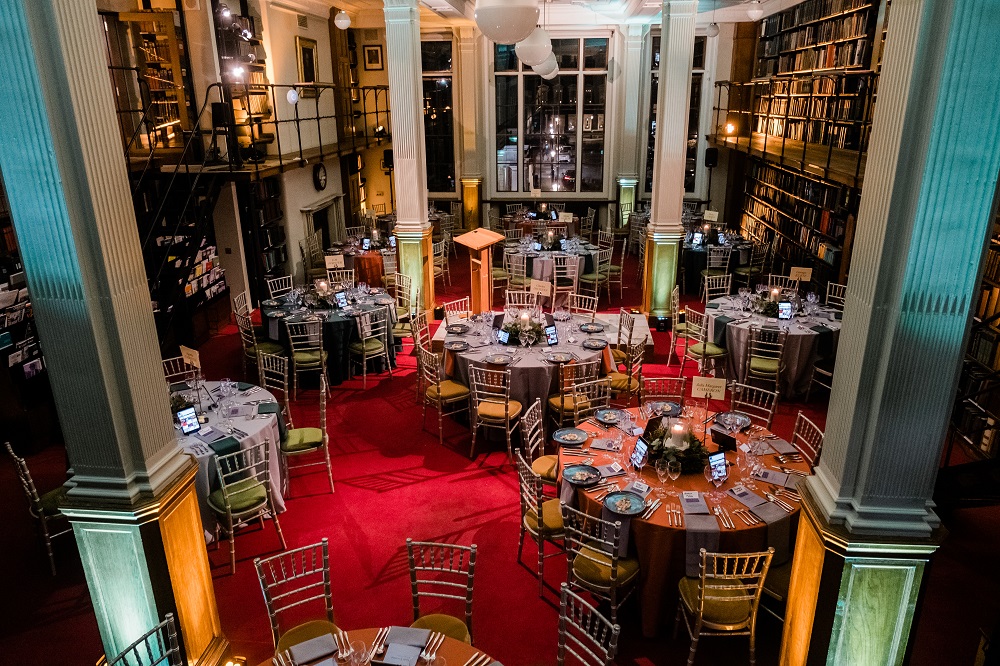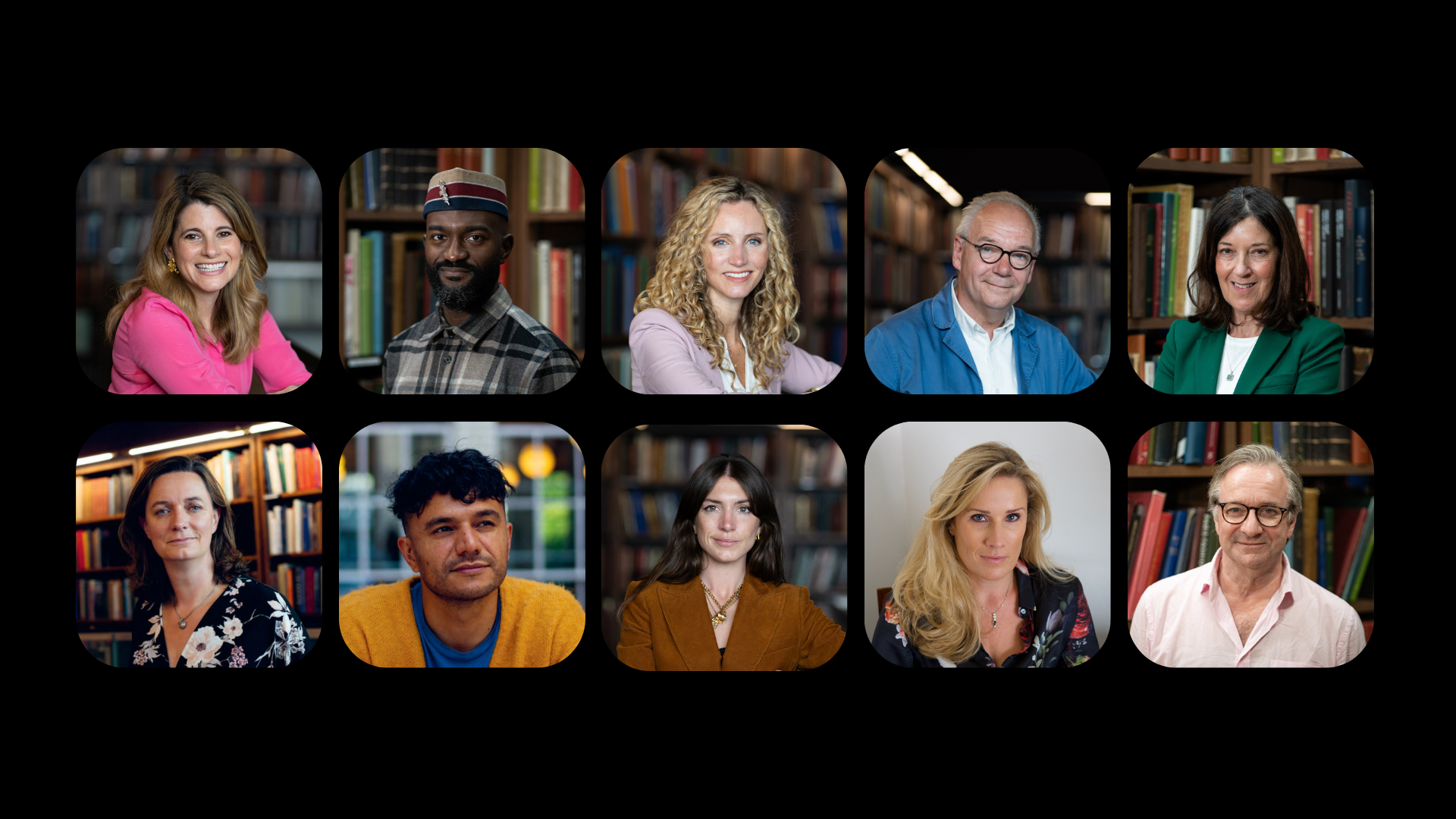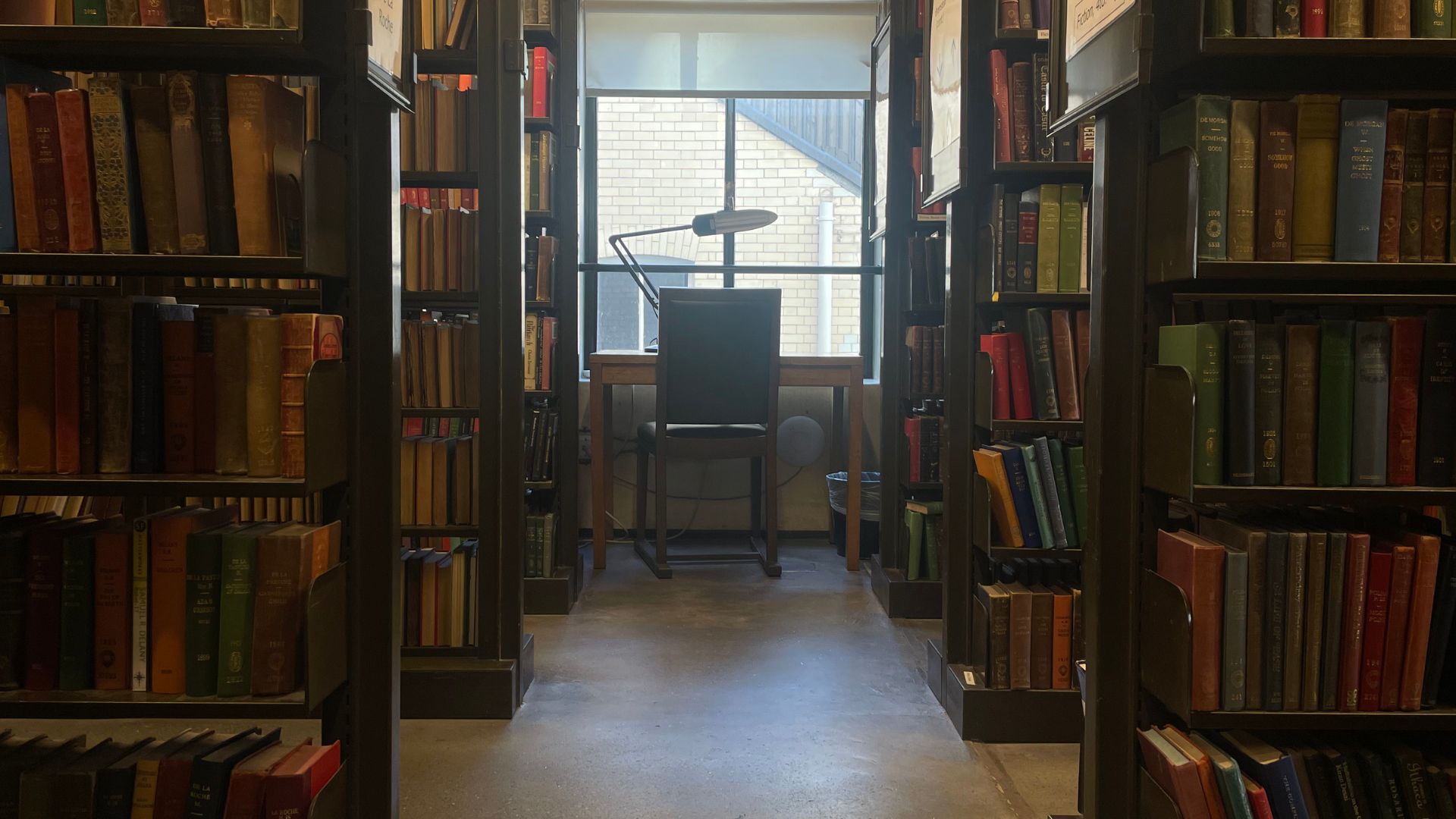Time to introduce Rosie, the third of this year’s Graduate Trainees here at the Library. In her first post for us, she finds a particularly intriguing shelfmark in the History stacks…
The posts by Carley, Alice and Xavier have already provided London Library blog readers with a great introduction into the world of a Graduate Trainee at The London Library. So much so that I was struggling to find inspiration for my first post!
As the job title suggests, the three of us current trainees are recent graduates from different universities across the country, and the subjects we studied provided us with an excellent foundation to complement the large arts and humanities collection housed here in the library. Alice studied Archaeology and Anthropology at Manchester University, Xavier studied English Literature and Creative Writing at Bath Spa University and I thoroughly enjoyed my three years at Teesside University studying for a History degree. My love of history has resulted in me developing a particular soft spot for the Library’s History section, spread across Levels 2, 3 and 4 in the famous ‘Back Stacks’. This section boasts a wide variety of shelfmarks such as: H. England, Kings and Queen; H. Goths (not the kind wearing PVC and black lipstick); right through to exotic locations such as H. Schleswig-Holstein and H. Zululand.
Whilst exploring the History section, I came across the shelfmark: H. Imaginary Hist. and was suddenly hit with inspiration. I realise that many historians would balk the concept of counterfactual history, and I must admit I would probably be of the same mindset. Is it productive to spend time musing over what would have happened if the Gunpowder Plot had succeeded? Or if the Brighton bomb had killed Margaret Thatcher in 1984? (See What might have been: leading historians on twelve ‘what ifs’ of history, edited with an introduction by Andrew Roberts; who is himself a Library member, appropriately enough.) Personally, I would disagree with this school of thought, but as human beings we can’t help but rely on hindsight and wonder if certain decisions or chains of events would have resulted in things turning out differently.
The notion of ‘what might have been’ also made me wonder what would happen if there was no London Library. What if Thomas Carlyle had never decided to create an alternative to the British Library with an extraordinary emphasis on making the collection available on open shelves? Or, worse still, what if the London Library had been reduced to rubble when it was hit by the Blitz during the Second World War? What if there hadn’t been a team of staff dedicated to the preservation of the London Library’s collection over the last 170 years? As a relative newcomer to the library profession, and as someone who wishes to pursue a long and hopefully fruitful career in this field, my traineeship here has made me consider the importance of places like The London Library, and libraries in general, to assist in the preservation of the printed word. We hear horror stories about the closure of public libraries and the ‘Google Generation’ relying on the internet to find the answers they need. However, the optimist in me firmly believes that the digital age will only serve to enhance the provision of our libraries, and that books and periodicals can survive in harmony alongside a growing number of e-resources and new technologies. I’m positive that The London Library has at least another 170 years left in it, if not longer!

